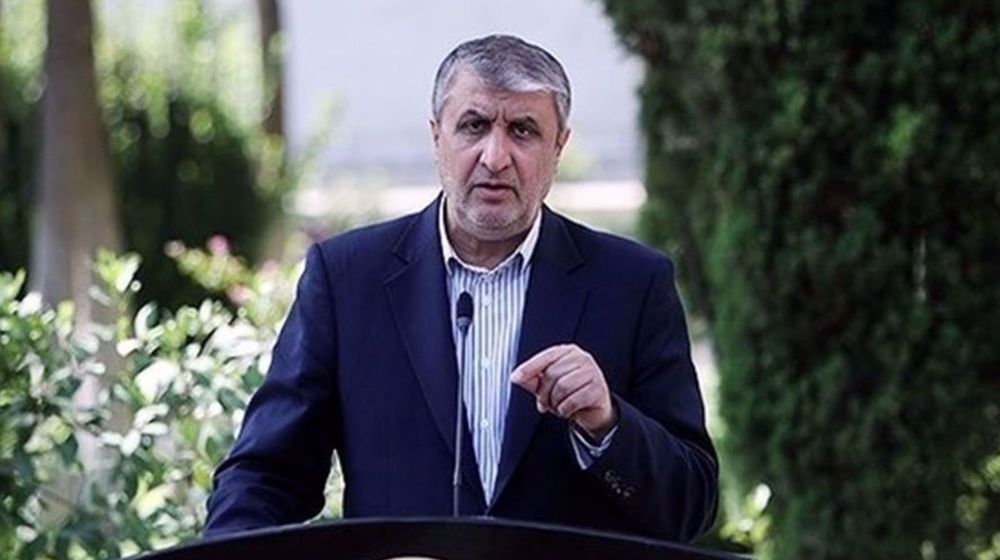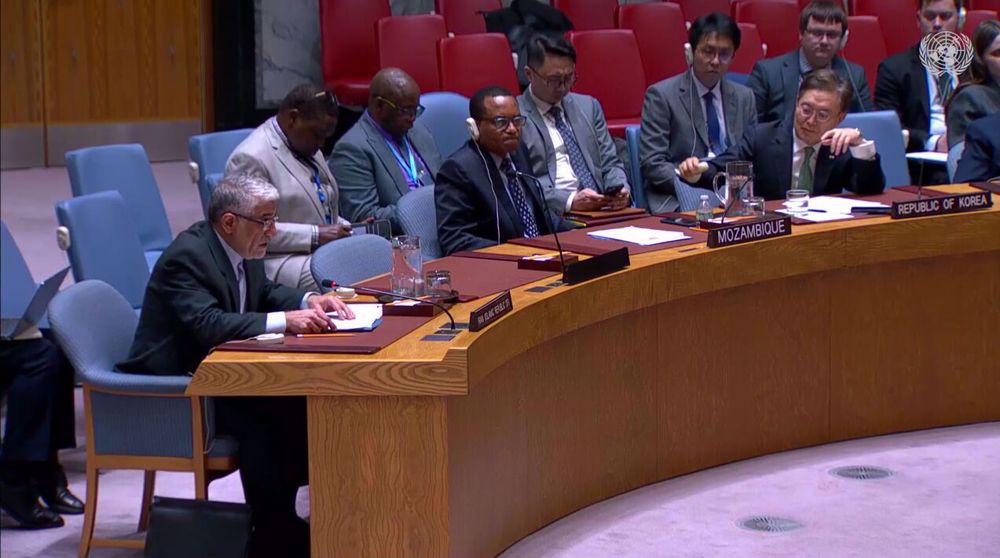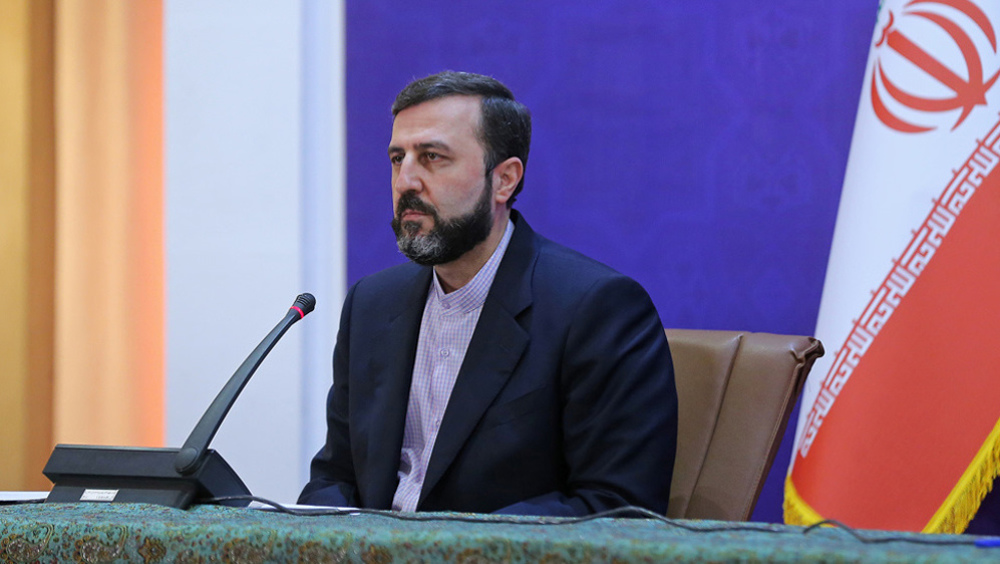All parties to JCPOA must fulfill commitments, says Iran’s IAEA envoy
Iran’s ambassador to the International Atomic Energy Agency (IAEA) says the 2015 nuclear agreement between the Islamic Republic and the P5+1 group of countries will be "sustainable" only if all parties fulfill their obligations stipulated in the deal.
Reza Najafi made the remarks in a Wednesday interview with Press TV on the sidelines of a quarterly IAEA Board of Governors meeting, which focused on a report by the agency’s chief, Yukiya Amano, on the implementation of the Iranian nuclear agreement, known as the Joint Comprehensive Plan of Action (JCPOA).
During the session in Vienna, “we… stressed that the JCPOA is sustainable only if reciprocal and mutual commitments will be implemented,” the Iranian envoy said.
“We urged the other parties as it is mentioned in the JCPOA to implement their obligations in good faith in a constructive atmosphere and refrain from any measures that could undermine the successful implementation of the JCPOA,” he noted
Describing the meeting as "positive," Najafi said that “all countries indeed supported continuation of… cooperation between Iran and the agency, and they welcomed the implementation of the nuclear-related measures by Iran.”
“They urged all parties to the JCPOA to implement their commitments and their obligations,” he added.
Najafi said the meeting gave the message to the new US administration that it should also follow suit and fulfill its commitments under the JCPOA.
The Iranian diplomat also reacted to a Tuesday US statement that pledged to show "great strictness" with regard to the JCPOA implementation.
The “US can only talk about strictness if and only if it fully complies with all its obligations under the JCPOA," Najafi said.
In his latest report on the JCPOA implementation released on February 24, Amano once again verified Iran’s adherence to its commitments under the nuclear agreement.
Read more:
Iran and the five permanent members of the United Nations Security Council - the United States, France, Britain, Russia and China plus Germany - signed the landmark nuclear agreement on July 14, 2015 and started implementing it on January 16, 2016.
Under the nuclear agreement, Iran undertook to put limitations on its nuclear program in exchange for the removal of nuclear-related sanctions imposed against the country.
‘Abhorrent’: Oxfam says only 12 trucks delivered aid in North Gaza since Oct.
VIDEO | Leader receives religious eulogists on Hazrat Fatima birth anniv.
Pope Francis slams Israel’s ‘machine-gunning’ of Gaza children
US hostage-taking of Iranian nationals violation of intl. law: Deputy FM
VIDEO | Carol Singers for Palestine on London’s Parliament Square
Israel powerless in confronting Yemen’s strikes: Ansarullah
VIDEO | Yemenis praise the military for its successful operations against Israel
VIDEO | Israel continues to bomb Gaza homes











 This makes it easy to access the Press TV website
This makes it easy to access the Press TV website